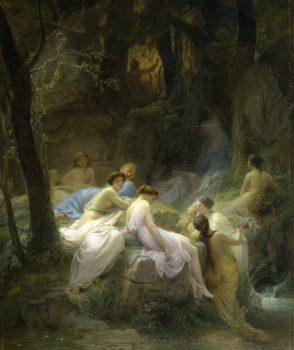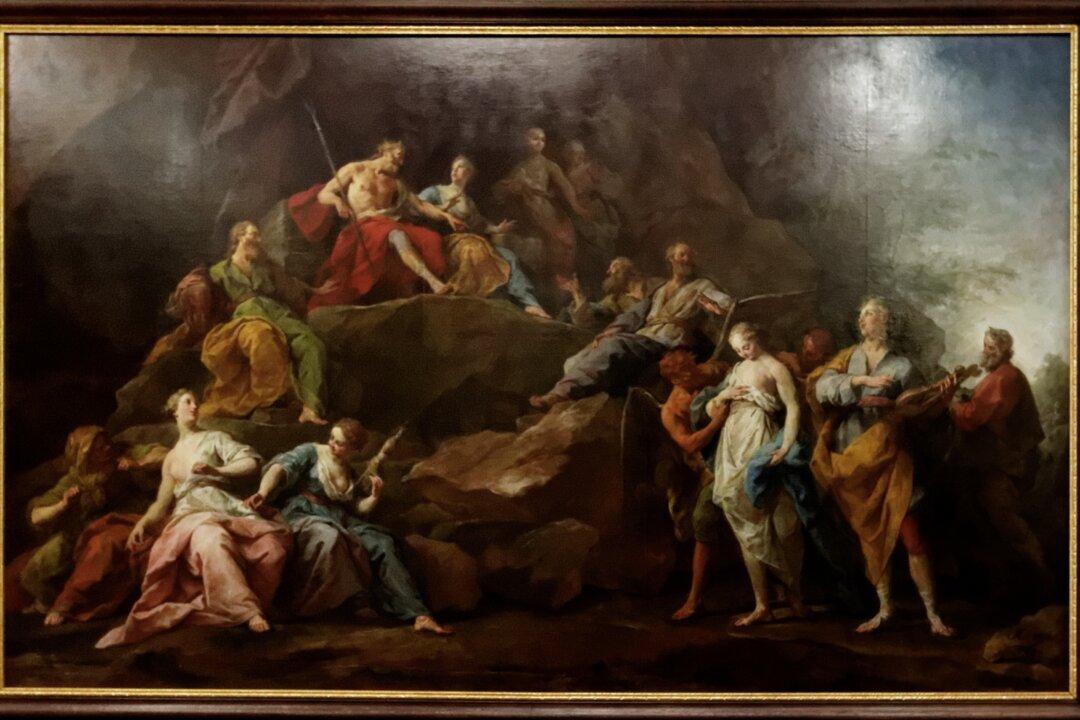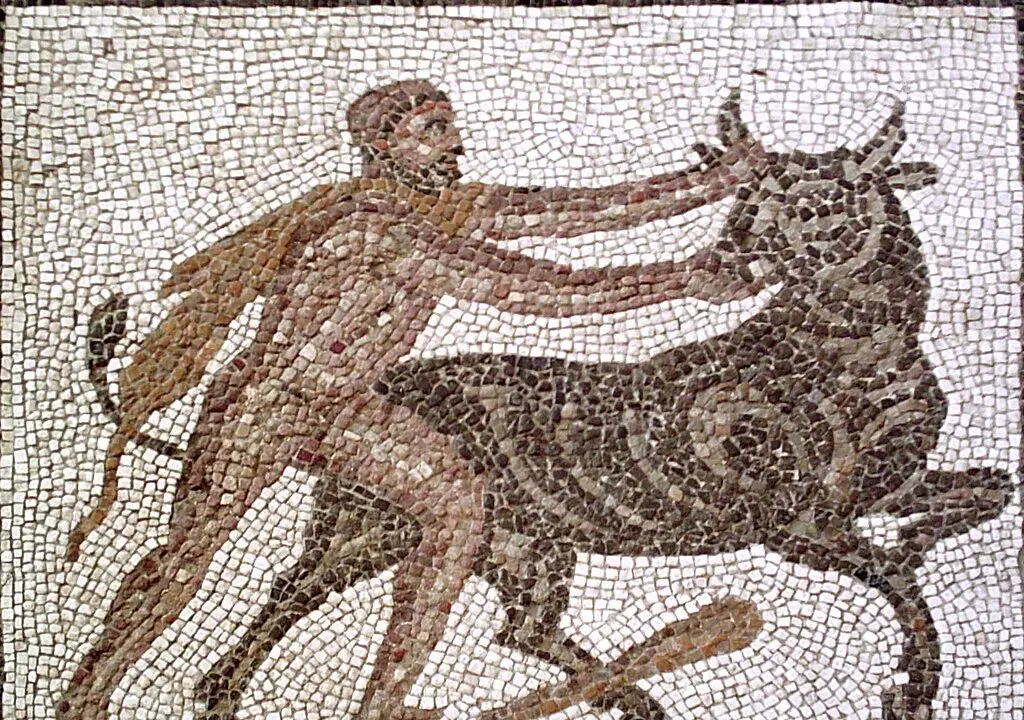The journey of the soul. Ah! Our soul. That is a story that has fascinated us from the beginning. We have many myths and legends that describe a hero’s journey into the underworld where souls reside. Today, of course, the word “soul” is unfashionable, except perhaps when we use it

Orpheus’s music was so beautiful it could enchant nymphs. “Nymphs Listening to the Songs of Orpheus,” 1853, by Charles Jalabert. Public Domain






